A land with a unique history, cradle of many artists, Spain is a beloved land, and, every year, becomes the destination of many tourists who decide to disconnect from everyday life and to reverse the route. But not everyone knows what are the potential advantages or disadvantages of this choice ...
Moving to Italy: advantages and disadvantages in 2019
Despite the political instability that has characterized this country for a long time, the forecasts for the Italian economic-social trend seem to be really encouraging. From North to South, the "boot" is rich in wonderful landscapes, architecture that evoke the historical periods that have made this nation one of the most beautiful in the world, but also of opportunities. With Milan considered the undisputed capital of fashion and business and Rome, the sovereign pearl cradle of the strongest civilization in history, Italy seems to have turned the page and is preparing to face this new year with determination but especially with all its potential.

If you are also interested in moving to this country and buying a property in Italy, you must absolutely know all the main aspects of this country, to be able to make a well thought-out choice and that can be really advantageous.
What do you have to do? Simply put you comfortable and carefully read each step of the mini guide, signed Realigro!
Let's start with the positive aspects of living in Italy. As we said before, this country is really full of opportunities that change according to the geography of the same nation. Although it is not the country with the highest employment rate in Europe, you can still find the job that best suits your skills. The main cities have excellent job offers and, it should be noted that any employment contract in Italy has some significant guarantees:
-remunerated transfers
-totally paid sick leave
-thirteenth
-liquidation
Let's see the cost of living now. Compared to the European average, Italy does not have one of the exaggerated costs, especially in the South, rich in raw materials and unique traditions. Among the most expensive cities we can undoubtedly find the most artistic ones such as Venice, Florence, Milan and Rome. The food and wine sector, however, has made this nation a world leader in exports, which is why, the wealth of this land of natural resources, ensures affordable prices in the food sector.
Let us move on to education. Universities have a payment system proportionate to the income of the citizen, and almost all the study centers are twinned with as many foreigners. Erasmus in fact are the projects most chosen by students, obviously funded by the universities themselves.
As far as health is concerned, in Italy it is part of the public sector, but despite this the crisis has forced the government to reduce the funds allocated to this sector and the bureaucratic process in general is very disorderly and long.
Among the positive aspects in this country could certainly not be mentioned the climate! It 's one of the best in the world, so that every year are millions of tourists who decide to visit this country in every season.
Along with the climate is mandatory to mention the variety of food and wine. Each Italian region has different traditional dishes, deriving mainly from the work of farmers and breeders who, over the years, have handed down the oldest traditions. And if you are afraid of not being able to speak Italian well, you can be really serene! Italians are famous all over the world for their openness and sunshine! You will feel at home! One element that penalizes this nation is the transport sector, which still struggles to innovate, except for large cities. Together with high taxation and the recent economic crisis, is the most harmful scourges of society.
As for the documentation required to enter Italy, almost all non-EU citizens require a visa, while European citizens can freely remain on the territory for three months with the identity document.
But how much does it cost to buy a property in Italy?
It obviously depends on the area. Generally, unless they are tourist destinations, which obviously provide for higher prices, properties in the northern part of the peninsula, are more expensive than those in the south. The average between North and South is 150,000 euros for the purchase of a property. While for rental contracts you can find opportunities to 150 euros per month to the South (as a base price) and from 300 euros per month to the North.
We hope that our guide can be exhaustive and that you can move to this country without problems, to discover the traditions that characterize it!
Moving to Europe
Moving to Portugal Moving to Germany Moving to France Moving to England
Moving to Malta Moving to Albania Moving to Andorra Moving to Austria
Moving to Belarus Moving to Belgium Moving to Bosnia Moving to Bulgaria
Related Insights
-
Moving to Spain: useful tips but above all winning!
-
Moving to Greece: the steps to take that will change your life!
After the collapse of Greece, it was expected that a great deal of investment would be lost in that country and that it would lose value. This was not the case, in fact! The situation that has arisen is similarly the opposite of what was planned! Why? The unique and inimitable lifestyle, the mil ...
-
Moving to Italy: advantages and disadvantages in 2019
Despite the political instability that has characterized this country for a long time, the forecasts for the Italian economic-social trend seem to be really encouraging. From North to South, the "boot" is rich in wonderful landscapes, architecture that evoke the historical periods that have made ...
Real Estate Listings
For sale Farmhouse, Italy, Cuneo, Dogliani, borgata Pamparato 5
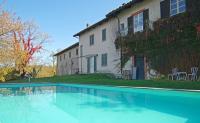
For sale
Farmhouse
1053 m²
For sale House, Italy, Carbonia Iglesias, Carbonia, Viale della libertà 36 Bacu Abis
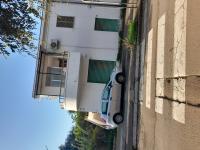
For sale
House
73 m²
For sale 5+ Bedrooms, Italy, Venice, Teglio Veneto, Via Vittorio Veneto, 15

For sale
5+ Bedrooms
171 m²
For sale Villa, Italy, Olbia Tempio, Trinità d'Agultu, costa paradiso via la sarrera
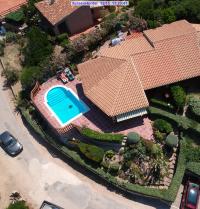
For sale
Villa
75 m²
For sale Villa, Italy, Ragusa, Ispica, c/da Santa Maria del Focallo
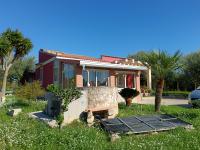
For sale
Villa
80 m²
For sale Farmhouse, Italy, Bergamo, Casazza, Via mologno
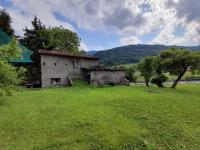
For sale
Farmhouse
200 m²
For sale Other (Residential), Italy, Cosenza, Mandatoriccio, via Pisa
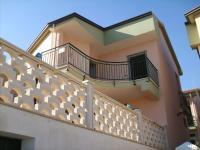
For sale
Other (Residential)
90 m²
For sale Terraced House, Italy, Teramo, Teramo, S.atto
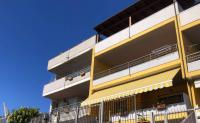
For sale
Terraced House
350 m²
For sale 3 Bedrooms, Italy, Bergamo, Piazza Brembana, Via Pissamora
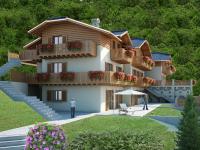
For sale
3 Bedrooms
108 m²
For sale Villa, Italy, Massa Carrara, Carrara, via Montebello 43
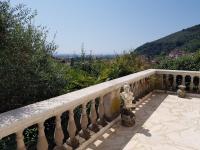
For sale
Villa
415 m²
